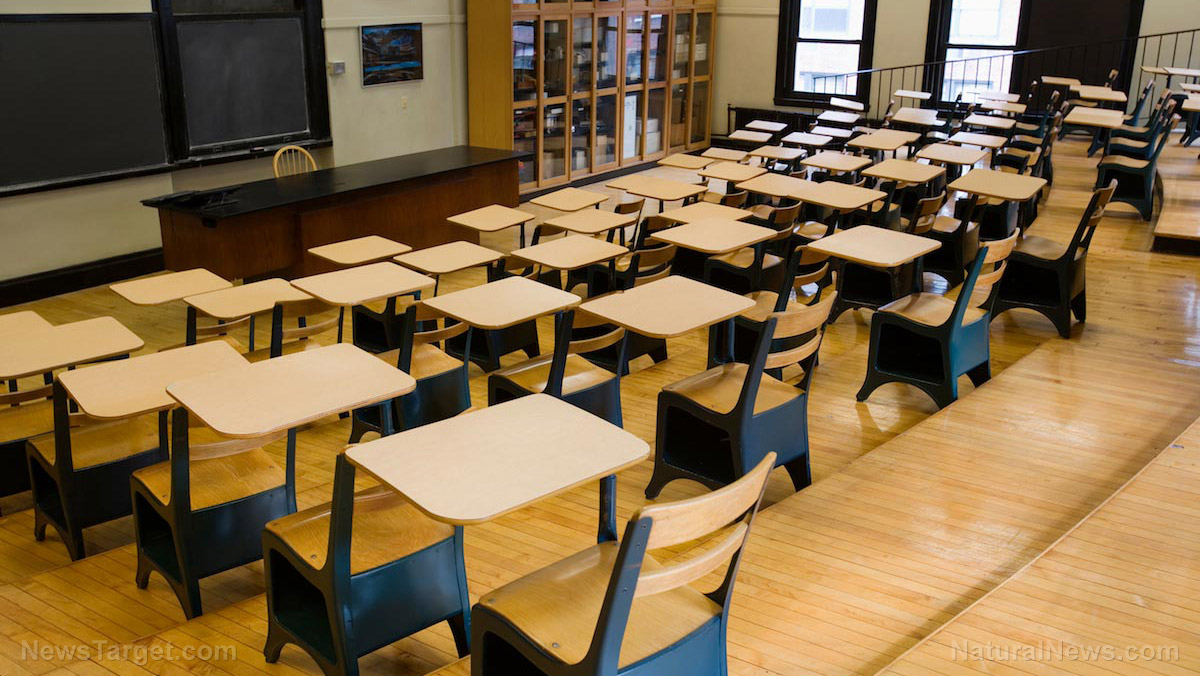Public schools found to be “toxic tombs” of PCBs being inhaled by students
07/04/2017 / By Russel Davis

A recent study published in Environmental Science & Technology revealed that concentrations of airborne polychlorinated biphenyls (PCBs) may persist in schools and may cause some students to breathe in the chemicals, which in turn may expose them to higher levels than when they inadvertently consume the chemicals through food. PCBs are toxic synthetic compounds that were banned in the U.S. nearly forty years ago. Before being banned, the chemicals were used in different industrial applications such as pints and building materials. Various industries were once known to dump PCB-containing waste into rivers and streams, which eventually resulted in massive environmental clean-ups.
While PCBs are no longer available in the U.S., the chemicals may still be seen in older buildings that once used them. Past studies have associated PCB exposure — through inhalation, ingestion, or skin contact — with adverse health effects such as cancers and developmental issues. Children are at an increased risk of these health woes. As part of the current study, a team of researchers at the University of Iowa examined the air quality both inside and outside of six schools, four of which are located within 1.5 miles of the Indiana Harbor and Ship Canal to determine the children’s PCB exposure.
The study revealed that PCB concentrations were higher inside all the schools than outside them, at about 194 nanograms per cubic meter. However, the concentration levels were below the current U.S. Environmental Protection Agency‘s recommended action level of 500 ng/m3. The research team also found that the sources of PCB exposure varied among schools, suggesting that historical contamination and new paint have something to do with these variations.

“This is the first time we’ve been able to pinpoint the source of PCBs inside schools. This study shows that the indoor air is contaminated, and that contamination is due to materials that remain in use in the school buildings. The results of our study are really quite chilling. To put it simply, any school that hasn’t been remodeled since the 1970s may have high levels of PCBs in the air, which children breathe day in and day out,” said researcher Professor Keri C. Hornbuckle.
Lead researcher Professor Peter S. Thorne stressed that the nation’s schools must provide students with a safe and healthy environment to facilitate growth and development. The health expert said schools should not contribute to increased exposure to persistent pollutants.
Previous studies link PCB exposure to cancer onset
A large number of studies have shown that PCB exposure may increase the risk of developing cancer. For instance, a 2012 study carried out by the Public Health Institute revealed that women who were exposed to three types of PCB during their reproductive years were three times as likely to develop breast cancer by age 50 than those who had significantly lower chemical exposure.
“To our knowledge, this is the first study to report on breast cancer associations in relation to measured PCB blood levels during critical periods of vulnerability for the breast. What is concerning is that important exposures happened decades before these women’s cancer actually developed. And women are still being impacted today. One must ask, what are the long-term effects of chemicals on the market today? And how can we do a better job of protecting ourselves?” lead author Barbara A. Cohn wrote in the PHI’s website.
Another study revealed that exposure to higher concentrations of mono-ortho polychlorinated biphenyls is associated with an increased risk of developing colorectal cancer.
The findings were published in Environmental Health Perspectives, the flagship journal of the National Institute Of Environmental Health Sciences.
Sources include:
Submit a correction >>
Tagged Under:
This article may contain statements that reflect the opinion of the author





















